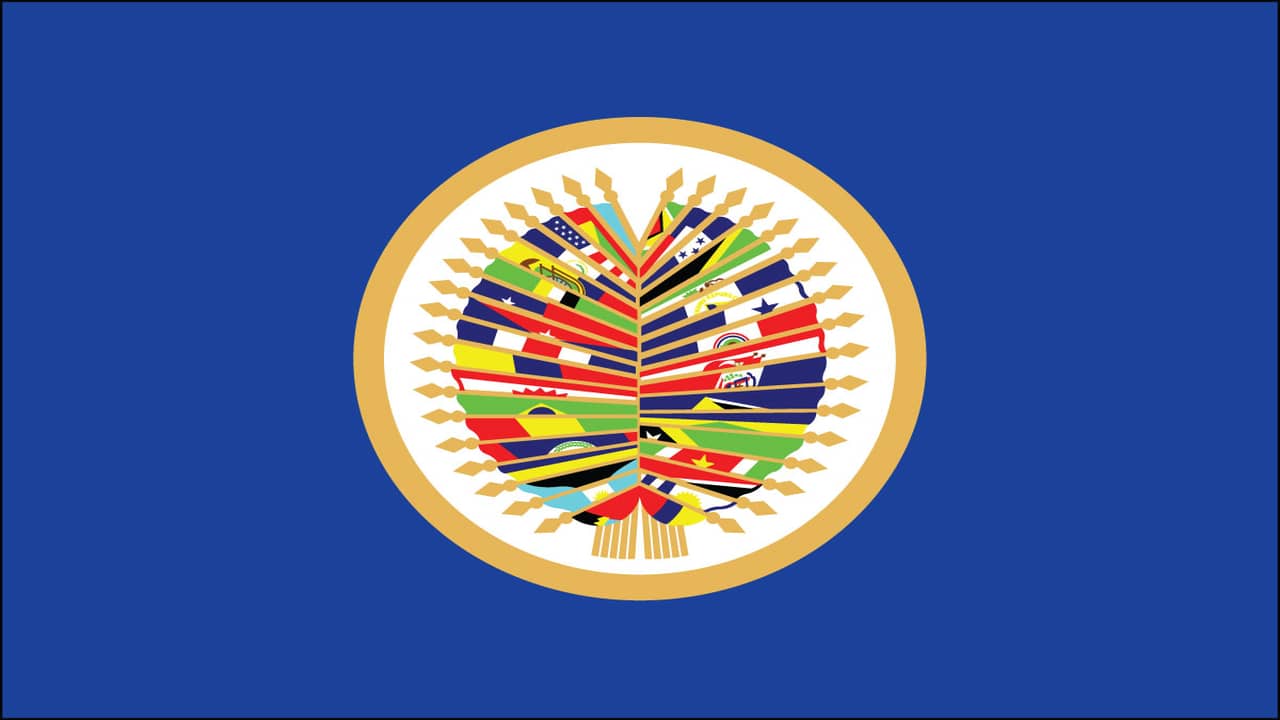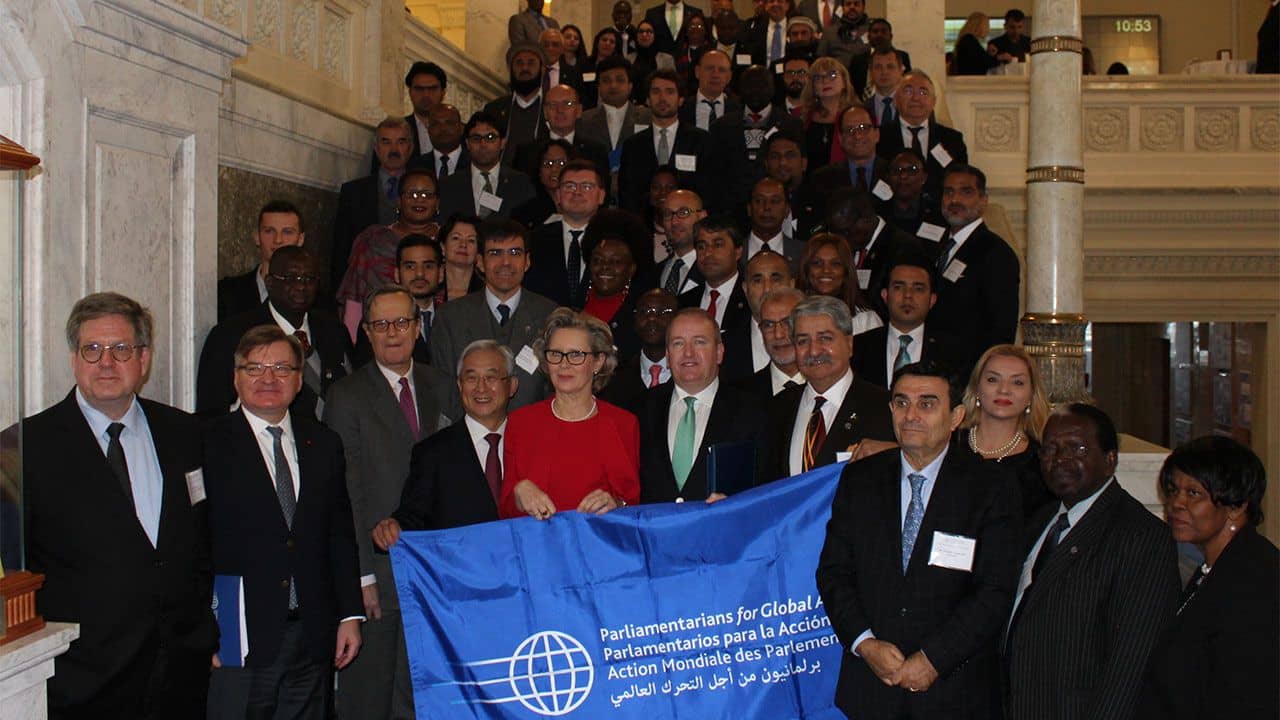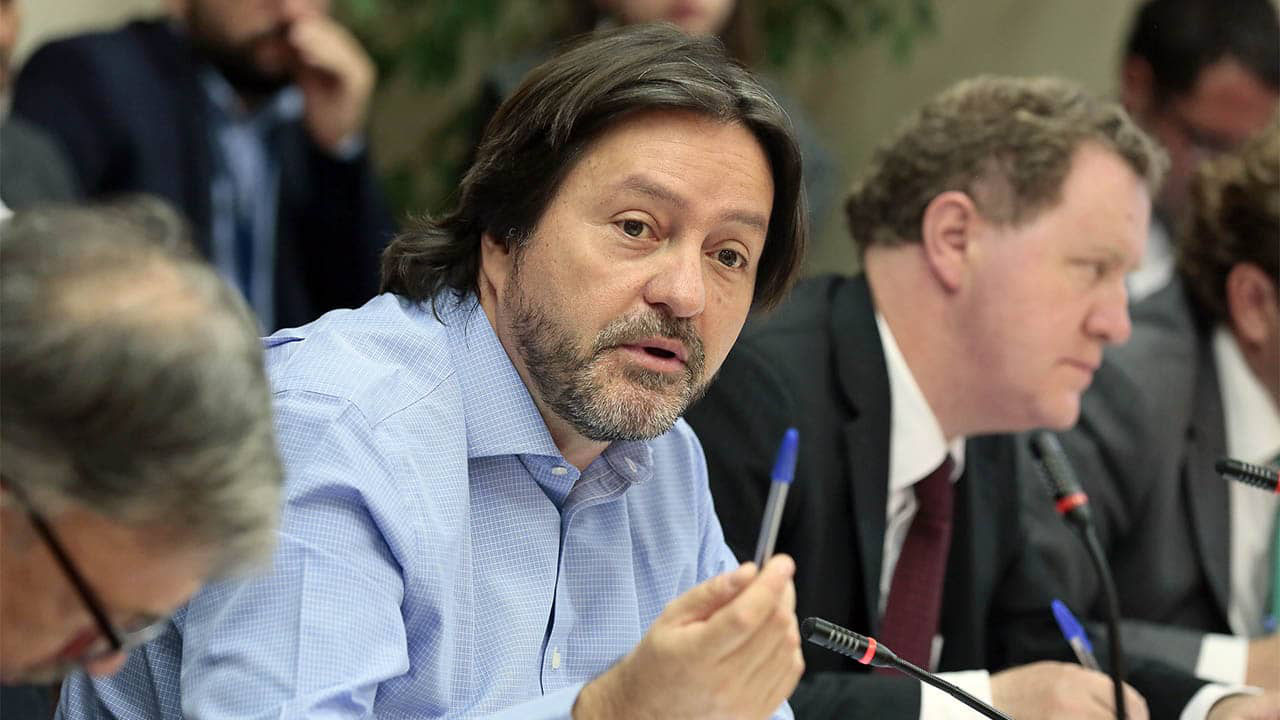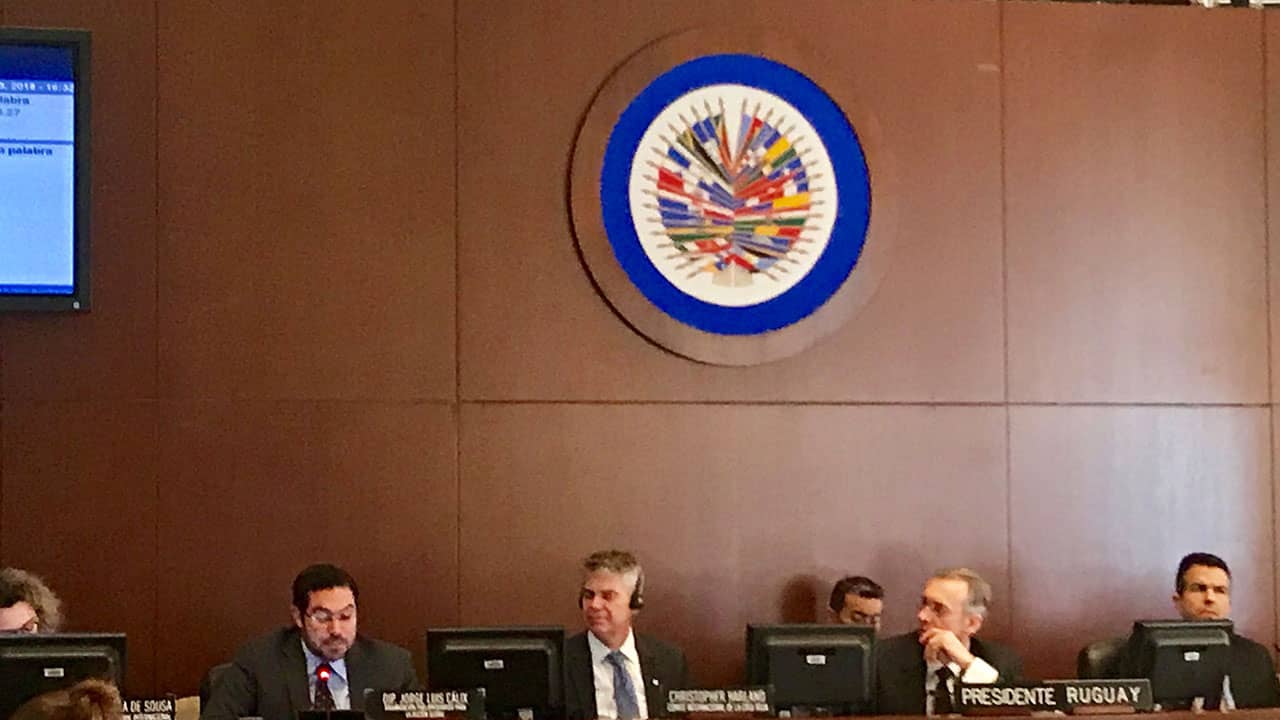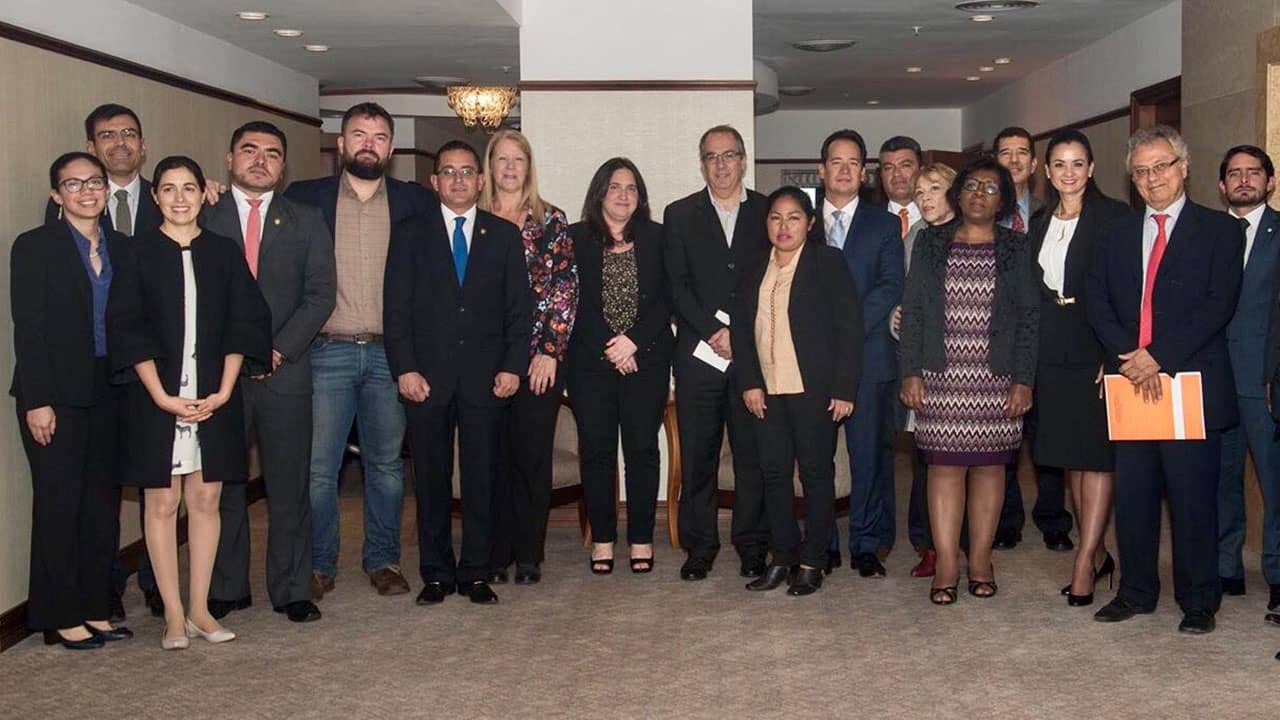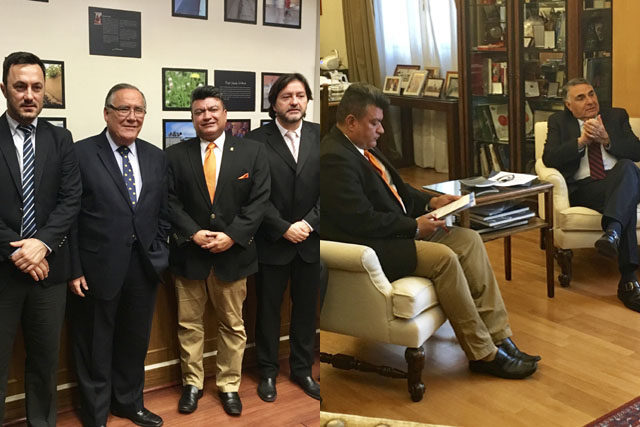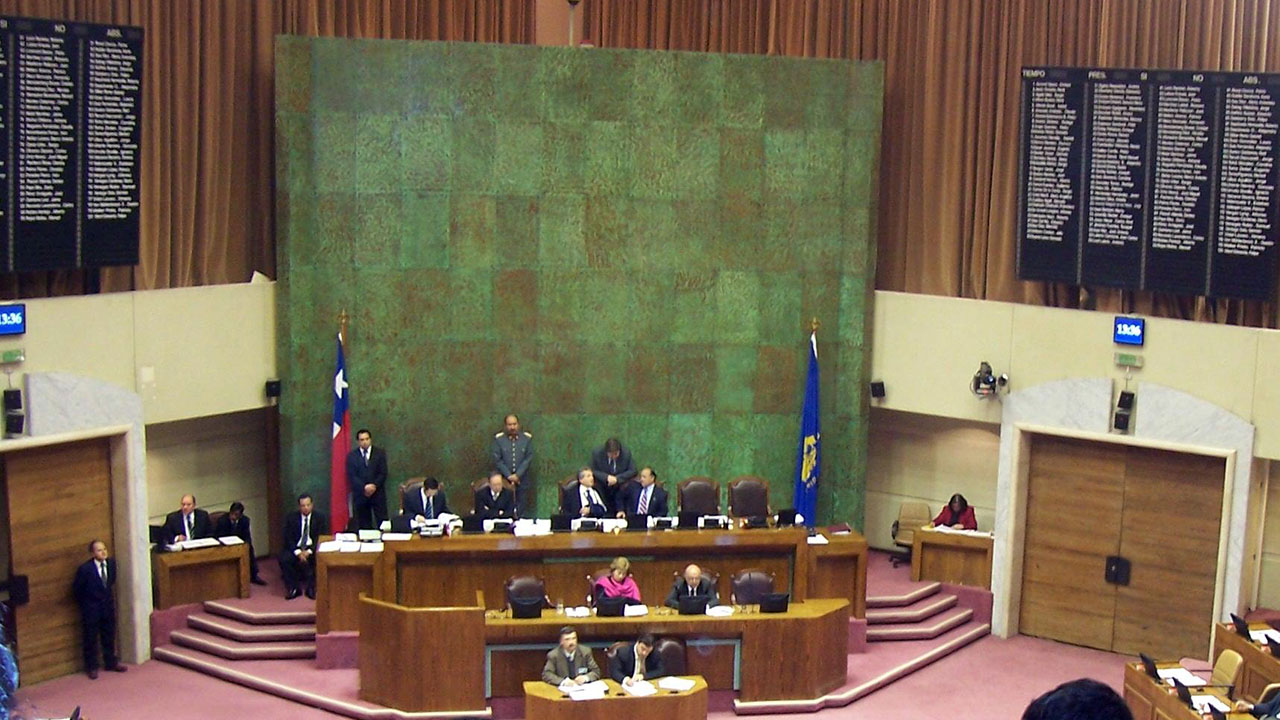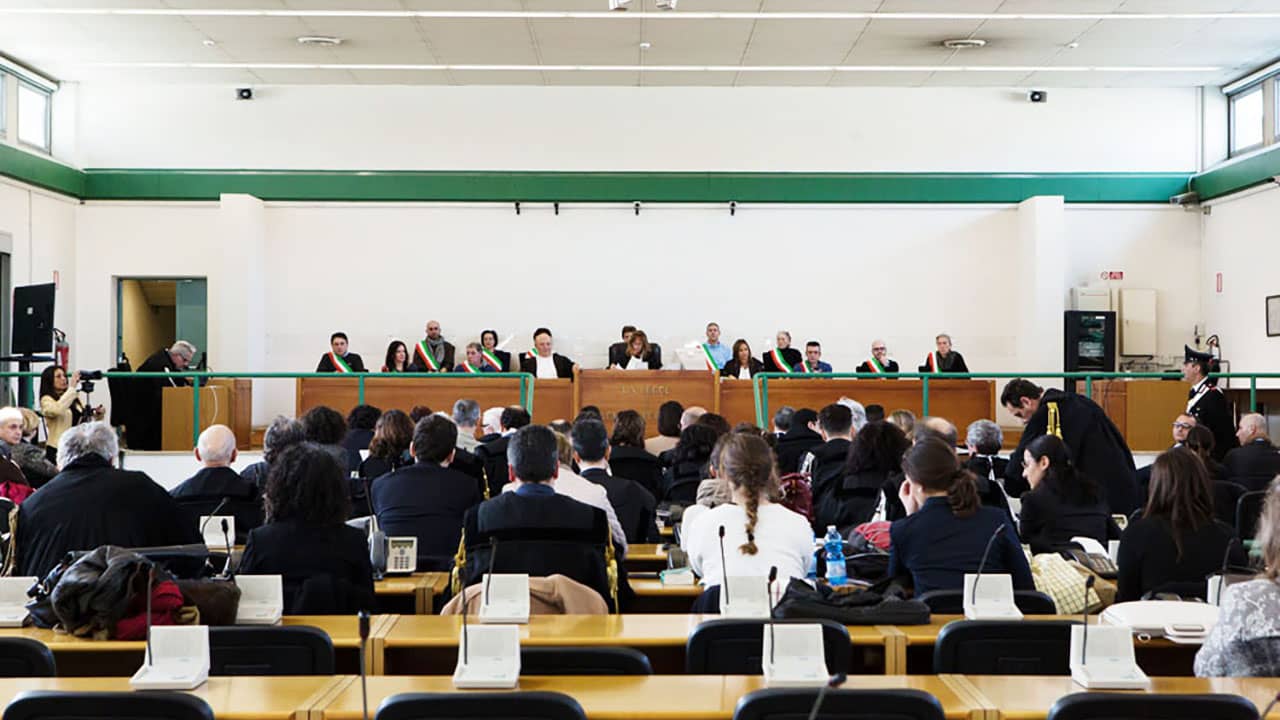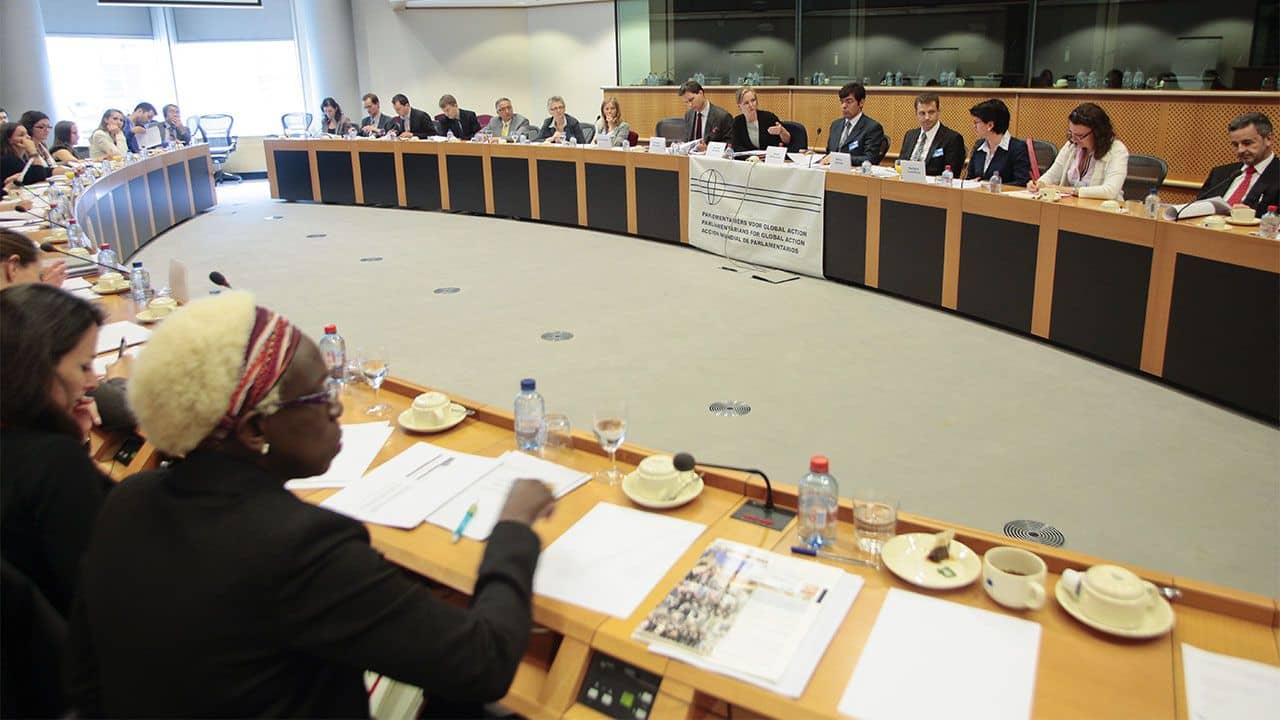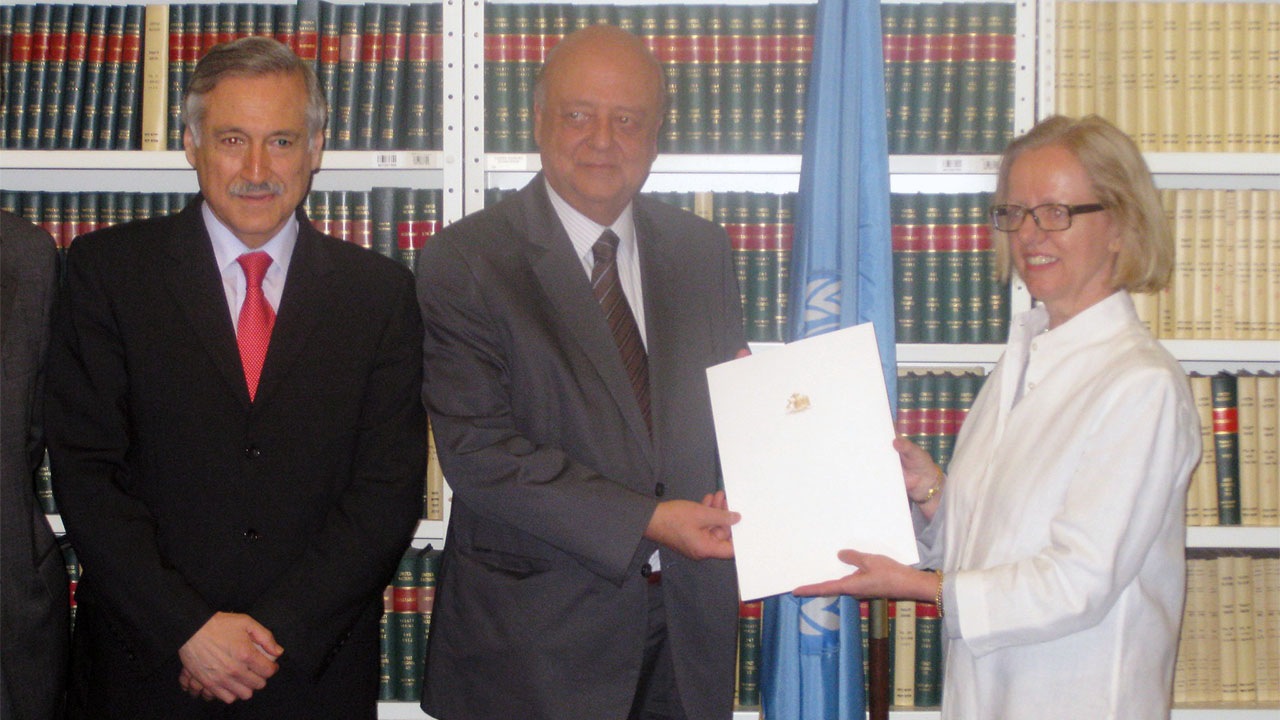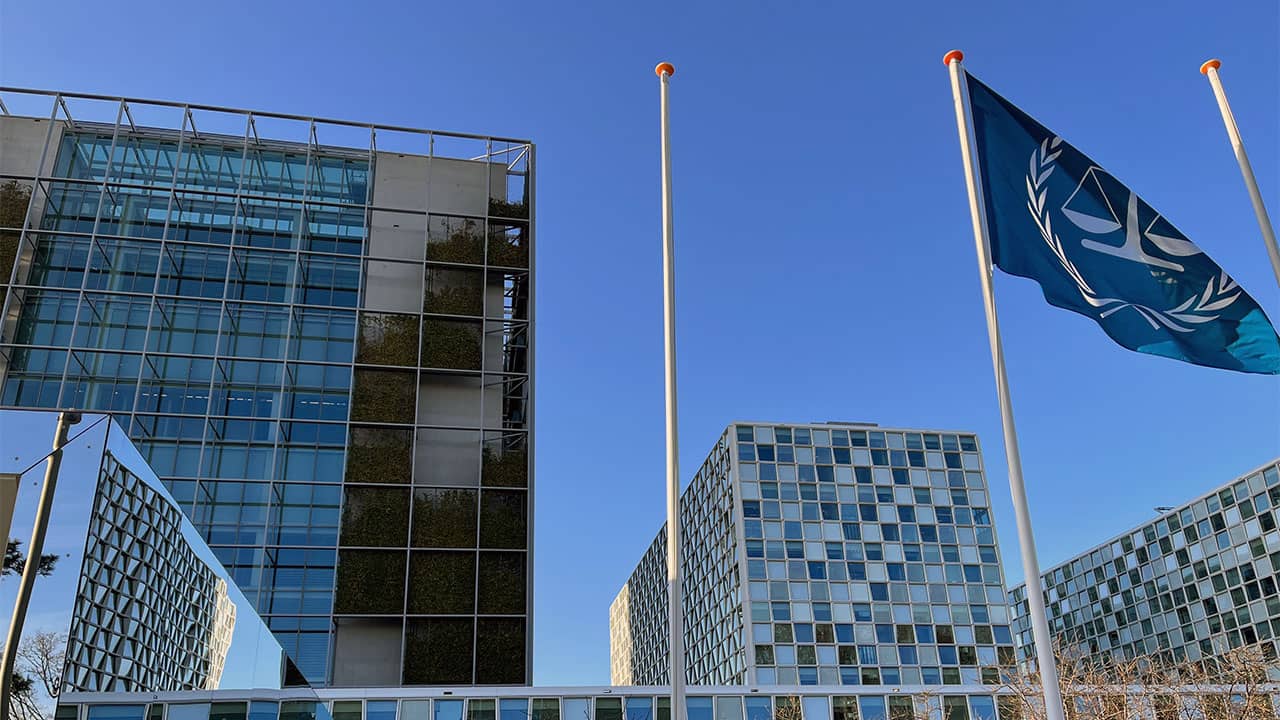PGA has a long and solid partnership history with the Republic of Chile, a state party which became one of the first signatory states of the Rome Statue.
PGA Members such as Sen. Jose’ Antonio Viera-Gallo contributed to the drafting and approval in both chambers of a constitutional amendment (June 2009) that gave constitutional recognition to the jurisdiction of the ICC, enabling the ratification. Also, since 1999 Dip. Gabriel Ascencio had a key role in building support in the Chamber of Deputies for the bill that implemented the Rome Statute that was accepted by all political parties, a key achievement given Chile´s past, alongside relentlessly campaigning for ratification and reaching out to the parliamentary opposition in order to secure the requited qualified majority in support. In this respect, a decisive role to build ‘bipartizan’ support for ICC ratification was played by former PGA Board Member Sen. Carlos Cantero.
PGA and MPs from Chile have been promoting the fight against impunity for the most serious crimes of international concern. Currently PGA’s work focuses on the full implementation of the Rome Statute, ratification and implementation of the Kampala amendments, and strengthening the cooperation with the Court in Chile. The leading Member of PGA in Chile on these priorities is Dip. Tucapel Jimenez.
Rome Statute
Chile became one of the first signatory states of the Rome Statute on September 11, 1998 and deposited the instrument of ratification of the Rome Statute on 29 June 2009.
Kampala Amendments of 2010
Chile has not yet ratified the Kampala Amendments to the Rome Statute, but attended the 2010 Review Conference where the Amendments were issued. Moreover, Chile is actively working on the ratification of the amendments on the crime of aggression. Read More.
On 19 June 2011, the President Mr. Sebastián Piñera submitted to the Chamber of Deputies a Bill approving the Kampala amendments to Article 8 of the Rome Statute and those related to the Crime of Aggression. At the eleventh session of the Assembly of States Parties (ASP) in The Hague on 14 November 2012 Chile stated its concrete commitment to ratify the amendments on the crime of aggression. Chile reiterated its commitments to ratify the amendments during the thirteenth session of the ASP (December 2014).
As of December 2015, both the Kampala Amendments have received approval by the Chamber of Deputies and the Senate but the ratification has not yet been officially publicized. The government is currently working on a Draft Bill to incorporate the Kampala Amendments into its legislation, which is expected to be presented to the Congress prior to the publication of the ratification of the Kampala Amendments. Read More on the ratification status of the Kampala Amendments.
Status on the domestic implementation of the Rome Statute
After the Constitutional Court of Chile decided that a constitutional reform was required in order to ratify the Statute, Chile implemented a constitutional reform (Law 20.352 of 30 May 2009) authorizing the Chilean State to recognize the jurisdiction of the International Criminal Court under the terms provided for in the Rome Statute.
On 18 July 2009, Law 20.357 was published, defining crimes against humanity and genocide as well as war crimes. Above law was intended to align Chilean legislation by defining any conduct constituting a crime under the Rome Statute of the International Criminal Court prior to ratifying the said treaty. Law 20.357 defining crimes against humanity and genocide as well as war crimes is a stand-alone law. However, it also contains amendments to Law 19.640, the organic constitutional law of the Public Prosecutor’s Office.
Law 20.352 amending the constitution and authorizing the Chilean State to recognize the jurisdiction of the International Criminal Court stipulates that “cooperation and assistance between competent national authorities and the International Criminal Court and the judicial and administrative procedures which may apply are subject to Chilean law”. Chile does not currently have any specific law on cooperation with the International Criminal Court. However, in order to meet the obligation of States Parties to fully cooperate with the Court in regard to the investigation and prosecution of crimes within its jurisdiction, a roundtable with representatives of the Ministry of Justice and Ministry of Foreign Affairs is currently preparing a draft law on cooperation with the ICC, and has undertaken to present this project to the National Congress as soon as possible.
Agreement on Privileges and Immunities of the Court (APIC)
Chile signed the APIC and ratified it on 26 September of 2011, on 2 August 2011, the Senate of Chile approved the ratification of the APIC with long-standing PGA members participating in support of the APIC.
Additional Agreements
Chile did not sign a Non-Surrender of Nationals Agreement with the United States regarding the surrender of US personnel to international tribunals.
Progress and PGA Action
The work of PGA under its International Law and Human Rights Campaign in Chile commenced as early as 1998, the year in which the Rome Statute, which provided for the establishment of a permanent international criminal court, came into being. In 2002 the first tangible steps toward full implementation of the Rome Statute were taken when, upon a report by PGA Member Dip. Gabriel Ascencio on January 22, 2002, the Chamber of Deputies of Chile adopted the ICC ratification bill. In March, however, a group of MPs within the Chamber of Deputies challenged the constitutionality of the Bill. The Constitutional Court then issued an advisory opinion that identified a number of areas of incompatibility between the ICC Statute and the Chilean Constitution.
On 11 October 2005 The Senate’s Constitutional Committee presented a joint report and decision on the by the Executive proposed bill and the one proposed by Government Coalition Senators. On the basis of a political agreement among key Senators, the Constitutional and Legislative Affairs Committee approved the text to be submitted to the plenary containing the proposed amendment of the Constitution. Some pro-ICC parliamentarians and NGOs disagreed with the content of the bill claiming that the compromise text including an interpretative declaration would be incompatible with the Rome Statute.
In 2007, Chilean Parliamentarians and PGA members Dip. Maximiano Errázuriz Eguiguren, Sen. Carlos Cantero and Dip. Tucapel Jiménez participated in the Mission of Chilean Parliamentarians to the ICC and other institutions, held in the Hague in October 2007, the Seminar on "Reflections and Analysis of the Ratification of the Rome Statute by Chile" (organized by PGA Member Sen. Carlos Cantero on the occasion of the visit of ICC President Judge Philippe Kirsch to Chile), and the Regional Seminar for Parliamentarians on the ICC with focus on gender justice (organized by HUMANAS, in partnership with the Human Rights Committee of the Chamber of Deputies of Chile, PGA and the CICC). These missions and seminars (co-)organized by PGA, brought the opportunity to consider and discuss strategies to expand the universality of the ICC. As a result the ICC system and the Rome Statute were an agenda item in the Parliament of Chile in the consecutive years.
On 7 April and 6 May 2009, the Senate and the Chamber of Deputies, respectively, adopted the International Crimes Bill No. 6406-07. Subsequently, with a wide majority of 79 votes in favor, 9 against and 1 abstention the Chamber of Deputies ratified the Rome Statute on June 17, 2009, following the positive vote (28 in favor, 1 against and 1 abstention) of the Senate a week earlier On June 24, 2009, the Constitutional Tribunal of Chile issued its decision confirming the Constitutionality of Bill No. 6406-07, which incorporates crimes against humanity, genocide and war crimes into the national legal order of Chile.
In this context, President Michelle Bachelet paid an official visit to the ICC headquarters in the Hague, where she met with ICC President Sang-Hyun Song and Prosecutor Luis Moreno-Ocampo, who expressed their appreciation for Chile’s progress in the ratification and implementation process.
On June 29, 2009, then-Minister for the Presidency, Dr. Viera-Gallo (former Senator and PGA member) deposited the instrument of ratification at the United Nations Secretariat. This made Chile the 109th State Party to join the ICC. On 18 July 2009 Chile approved Ley no. 20.357, implementing the core crimes of the Rome Statute, but it contained no reference to cooperation with the ICC.
In regard to cooperation with the ICC System, Chilean PGA Members have played a key role in promoting the draft legislation on cooperation, which must be transmitted by the Government to Parliament for consideration and adoption. In January 2011, PGA provided a briefing on Chile’s cooperation obligations to former Senator and active PGA member Dr. Viera-Gallo who, at the time, served as a Judge (“Ministro”) in the Constitutional Court of Chile. Dr. Viera-Gallo held high-level meetings with Chilean government officials to promote the full implementation of the Rome Statute, including the cooperation obligations (and the ratification of the Kampala Review Conference amendments).
During the first-ever UN High-level Meeting devoted to the Rule of Law, held on 24 September 2012, Chile pledged to “work hard for the development of national legislation to implement the Rome Statute, particularly, by submitting to the National Congress, by 30 June 2013, draft legislation on cooperation with the International Criminal Court.” The law that sets up a cooperation mechanism with the ICC is still under preparation by the Executive.
On 10-11 April 2013, on the occasion of the 67th UN General Assembly Thematic Debate the Role of International Criminal Justice in Reconciliation, Chile stated its support for the international criminal tribunals for the former Yugoslavia and Rwanda and encouraged the international community to work towards ICC universality. On 17 July 2013 Chile co-signed a Communiqué on the occasion of International Criminal Justice day calling for the UN to continue supporting ad-hoc tribunals established by the Security Council. Also, it recognizes the role of the ICC in maintaining international stability, praises its proceedings as impartial and unbiased, and invites other countries to accede to the Rome Statute.
In December 2015, the President of the PGA National Group in Chile, Dip. Tucapel Jiménez, issued a parliamentary declaration urging the Government to send the ICC Cooperation Bill to parliament, reminding the government of its obligation under the Rome Statute to incorporate into its legal system the proper cooperation mechanisms. To read the complete declaration (in Spanish), click here.
On Wednesday 6 April 2016 the Chamber of Deputies of Chile unanimously adopted resolution 526 calling on the Executive to send a bill on cooperation with the International Criminal Court, in accordance with the obligations assumed when Chile ratified the Rome Statute. In addition, the parliamentarians proposed the Ministry of Foreign Affairs to take into consideration in the drafting of the Bill on Cooperation for Chile, the PGA Reference Law on Cooperation and Relationship with the International Criminal Court of Parliamentarians. This Resolution was introduced on 15 December 2015 by Tucapel Jimenez , PGA National Group president, Jenny Alvarez , PGA member, Ramón Farías, PGA member together with four other members of parliament from different political parties. In the resolution, the lawmakers referred to the different laws passed to ratify the Rome Statute in Chile, including the constitutional reform (law no. 20.352) and to implement its substantive part, i.e. crimes and principles included in the Statute ( law no. 20,357). Moreover, the authors of the resolution stated that regarding the obligation to cooperate with the ICC, the government of Chile submitted to the Secretariat of State on July 7 2014 a note stating that: "a Working Group with representatives of the Ministry of Justice and the Ministry of Foreign Affairs, is preparing a draft law on cooperation with the International Criminal Court which is expected to enter soon to National Congress" however, to date Chile does not have a specific law in this area.
Moreover, today, 12 April 2016, Dip. Tucapel Jimenez, introduced in the Chamber of Deputies a parliamentary motion to request the government to send a bill to define in the national legal system crime of aggression and the war crimes included in the Kampala Amendments to the Rome Statute.
Diplomatic Commitments
On 11 June 2012, the Ministers of Foreign Affairs of the Union of South American Nations (UNASUR: Argentina, Bolivia, Brazil, Chile, Colombia, Ecuador, Guyana, Paraguay, Peru, Suriname, Uruguay, and Venezuela) called upon all States Parties to ratify the amendments adopted in Kampala. View the UNASUR letter here.
On 17 July 2015, on occasion of the International Criminal Justice Day, the Minister of Foreign Affairs of the Union of South American Nations (UNASUR) invited states that were not yet State Parties to ratify or accede to the Rome Statute, they also reiterated their strong support to the International Criminal Court, among other issues regarding the ICC and the Rome Statue. View the UNASUR Declaration of July 17, 2015.
Organization of American States (OAS)
As a member of the Organization of American States, Chile has supported the promotion of the International Criminal Court through the adoption of an annual resolution by the General Assembly of the OAS, as well as by holding an annual high-level work meeting within the Political and Juridical Affairs Committee of the OAS. PGA members have been invited to this meeting on numerous occasions. For more information on the work of PGA within the OAS, click here.
Human Rights Council Universal Periodic Review
During the 1st cycle (2008-2011) of the UN Human Rights Council Universal Periodic Review (UPR), Chile has been a staunch promoter of the universality of the Rome Statute. It has recommended to 11 states (Brunei, Côte d’Ivoire, Egypt, El Salvador, Equatorial Guinea, Kuwait, Mozambique, Nepal, Nicaragua, Qatar and Turkey) to consider the ratification of the Rome Statute as a human rights objective. In 2009 (5th session of the UPR) Argentina, Brazil, Colombia, France, and Spain recommended Chile to consider ratifying the Rome Statute, after which Chile proceeded with ratification on 29 June 2009.
Chile was also reviewed during the 18th session of the Human Rights Council Periodic Review (UPR) in January 2014,where it was recommended to ratify the Kampala Amendments to the Rome Statute and to align its national legislation with the Rome Statute, in particular by incorporating provisions on cooperation with the Court.
Further relevant information
Prosecution of International Crimes
Progress with regard to the prosecution of crimes committed by the Chilean dictatorship and its henchmen was initially slow, but after the arrest of former dictator Pinochet on British soil there seems to have been a re-emergence of accountability efforts in the judicial sphere. First of all, accountability efforts started to affect high-ranking military officers, opposed to previous convictions which had only reached low-ranking triggermen. Secondly, judges seemed to move away from the maximalist interpretation of amnesty law with regard to certain categories of internationally proscribed crimes. Third, the accountability efforts after 1998 seemed to have more successful outcomes in terms of cases being admitted to court and fully investigated. And lastly, the range of crimes being dealt with by courts expanded from exclusively crimes with fatal outcome and disappearances to include crimes such as forced exile and torture. This broadening of the categories of crimes for which former state agents were being charged also sparked a change in civil responses. Plenty of new organizations emerged, forming and intricate patchwork of relative-, survivor- and sympathizing groups that organized themselves according to their common identity categories such as political affiliation, repressive episode, and date or place of detention.
The notable shift in justice demands and outcomes after 1998 is commonly denominated the ‘Pinochet effect’, referring to the consequences of the arrest of former dictator Pinochet on British soil. It must not be overlooked that there were many domestic factors also playing a part in this change, including the tireless efforts of pro-accountability actors over the years and the gradual democratization of Chile.
Pinochet died in 2006, with various charges pending, but without being convicted for any of the crimes committed during the dictatorship. Importantly, despite Pinochet’s demise all cases related to his case remained under investigation with regard to other suspects, and other cases that did not involve Pinochet directly as a suspect also reaped the benefits of the increased human rights activity. Although Chile has seen a gradual rollback of impunity, the sentences have been disproportionally mild. The Supreme Court has made use of a discretionary sentencing formula, also called half prescription (media prescripción), which allows judges to discount sentences in direct proportion to the time that has passed since the crime was committed. The half prescription sentencing formula was a compromise made between pro- and anti-amnesty judges in the Supreme Court. More recently, in the Villa Grimaldi case (2014), the Supreme Court maintained that the half prescription formula should not be applied in cases of crimes against humanity or war crimes, drawing on the prevalence of the Geneva Conventions and International Human Rights Law. Although the accountability scenario in Chile has become more favorable over the past years, the prosperity of cases still depends heavily on the strategizing and active pursuit by pro-accountability actors. The state-sponsored Programa de Derechos Humanos is currently the institution with the best overview of active human rights cases in Chile. However, the State itself has not instigated a single one of these cases, which means that the survival and outcome of these cases still depend on the dedication of capable and motivated lawyers and the active engagement of victims or their relatives. Without this kind of private sponsorship, cases risk being relegated to the side and eventually fail to proceed.
Landmark decisions by the Supreme Court, such as the extradition of Fujimori to Peru in 2007, thus affirming the responsibility of heads of states in human rights violations as a consequence of their control over the organizational power structure, took place against a backdrop of a growing independence of the judicial branch in Chile. . The greater independence of courts (especially from the executive) has in its turn encouraged civil society to demand justice for human rights violations, since increased autonomy raises the probability that courts will protect individual rights.
Amnesty
In 1978 the outgoing military government issued Legislative Decree 2.191, which granted amnesty for multiple and serious crimes committed by military agents and henchmen of the regime between 11 September 1973 and 10 March 1978. The application of amnesties to international crimes is a matter of concern in many post-conflict societies and in the case of Chile it has severely hindered accountability efforts over the past decades. Throughout the years, prosecutors, judges and victims and relatives’ lawyers have developed innovative strategies of circumventing the Amnesty Law. The verdict in the Sandoval case presented a turning point in this regard. It was the first Supreme Court ruling on the non-applicability of the Amnesty Law that led to a conviction and sentence. The Court argued that the crime of ‘forced disappearance’ was still ongoing as long as there was no information as to the victims’ fate or whereabouts, which meant that the crime had not been completed within the period covered by the Amnesty Law and therefore amnesty could not be applied. The ‘ongoing crime thesis’, however, seems to create inconsistencies in the application of law, in that it would only apply to enforced disappearances but not to ‘completed’ crimes such as murder for example. The more promising argument on which the Supreme Court based its decision consisted in the supremacy of the Geneva Conventions (1949) over any incompatible domestic law. According to the Supreme Court, in other words, Chile would violate its obligation under the Geneva Conventions to guarantee the security of persons who may have participated in armed conflict within its territory – particularly detainees – if it were to apply amnesty in these cases. The Court decision also contained references to grave breaches and the accompanying aut dedere aut judicara provisions. Since the Court characterized the State of Siege decreed after the military coup as an ‘internal conflict’ this leaves doubt as to whether these provisions are applicable in this case since the Geneva Conventions do not make mention of the obligation to prosecute or extradite in case of an internal conflict. Notwithstanding, a rule of customary law, that has been taking shape since the ICTY’s landmark decision in the Tadic case, affirms that the commission of the aforementioned grave breaches imply individual criminal responsibility, regardless of the nature of the armed conflict.
Upon taking office for her second term in 2013, President Bachelet promised to bring the Chilean justice system in line with international standards. In September 2014, in the context of the 41st commemoration of the military coup, the Chilean government announced its intention to speed up the annulment of the Amnesty Law, based on a bill introduced in 2006. However, the Amnesty Law is still before Congress and its future seems unsure. Many argue that the Amnesty Law has become just a norm that has gone out of use since the Supreme Court turned the tide in favor of pro-accountability actors. The number of cases and convictions related to the military dictatorship has risen substantially over the past years. Although the courts seem to have found ways to circumvent the Amnesty Law in cases of serious human rights violations, it is still important that the law be overruled, because the mere existence of the law and its repeal lingering in parliament conveys the idea that Chile is still not prepared to battle impunity and provide truth and justice.




